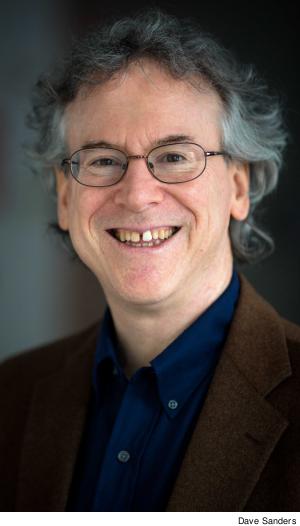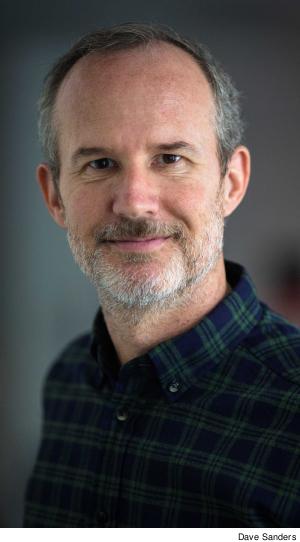Teaching credit issue
The union is inching toward a notable anniversary.
On November 30, the PSC will have gone one year without a new collective bargaining agreement with CUNY. The Triborough Amendment of the state’s labor law keeps the old contract terms in place until a new one is ratified. And because the union has defended salary steps in previous rounds of bargaining, annual step increases remain in place even while a new contract is being negotiated. As the one-year anniversary nears and other public-sector contracts are settled, the pressure on CUNY to deliver an economic offer has increased.
 |
On the heels of a major PSC contract rally in lower Manhattan on September 27 (see pages 6-8), during which members demanded an economic offer without further delay, the union’s bargaining team met once again with CUNY management on October 4.
GOING TO THE BOARD
The next step for the union comes as this newspaper arrived in campus mailboxes – the union mobilized members to testify at the October 22 CUNY Board of Trustees hearing to demand that the trustees’ budget request to the City and State include a fully funded contract with real raises, funding for the teaching load reduction, and an increase in adjunct pay to $7,000 per course for adjuncts. “The biggest issue of this contract is funding ,” PSC President Barbara Bowen said, noting that state’s current practice of agreeing to raises without funding them in the annual budget forces individual colleges to pick up the cost. “The underfunding by the state has forced senior colleges to gouge their academic budgets to cover the cost. That is outrageous.”
During bargaining sessions, CUNY management has indicated that an economic offer to the PSC would be likely to mirror wage deals reached at the state level with the Public Employees Federation and SUNY’s United University Professions – a pattern of 2-percent annual salary increases. Bowen observed that CUNY normally insists on adhering to a blend of the city and state collective bargaining patterns in its economic offer, but that the PSC has been able to maximize the value of those patterns. Increases of 2 percent per year barely cover the current and projected rate of inflation. The union continues to call for an offer that will address the salary erosion for full-time faculty and staff in the 1980s and 1990s and will work to reach an agreement that delivers the best value to members. PSC negotiators have also made it clear that substantial additional funding will be required to address the adjunct salary crisis.
Felipe Pimentel, an assistant professor of behavioral sciences at Hostos Community College, told Clarion that at a recent meeting of the University Faculty Senate, interim Chancellor Vita Rabinowitz expressed interest in resolving contract negotiations in “the near future” and that she invoked the statewide 2 percent bargaining pattern. “Regarding the possible outcome of the contract negotiations, interim Chancellor Rabinowitz mentioned the SUNY contract and she insisted on the so-called pattern bargaining model that has framed negotiations between the city and the state with different labor unions,” he said.
OTHER CONTRACTS
Because CUNY’s contract must be approved by the city as well – the city provides funding for CUNY’s two-year colleges – the municipal labor pattern also looms large in PSC-CUNY talks. On October 11, Mayor Bill de Blasio announced a tentative agreement with the United Federation of Teachers that includes annual raises of 2, 2.5 and 3 percent, with the final 3-percent raise covering 18 months, rather than 12. The membership of the largest municipal union, District Council 37, recently ratified a contract that included yearly raises of 2 percent, 2.25 percent and 3 percent, with a similar configuration for the final year.
“I expect CUNY will offer the state pattern for across-the-board increases, which is 2-percent per year, which is too little in this environment, but the real question is what else we will be able to win outside of the across-the-board increases and of course equity pay, especially for adjuncts and other low-paid titles,” said Steve London, a member of the union’s executive council and bargaining committee.
The union offered its economic demands when contract talks began and continues to press for them: wage increases for full-time faculty and staff that address historic salary erosion at CUNY, a minimum of $7,000 per course for adjuncts, an equity increase above the across-the-board raises for collegee laboratory technicians and lecturers .
TEACHING LOAD
In the October contract negotiations, CUNY management presented its case for a new proposal, to allow faculty to members to use summer teaching credit toward their total academic year’s teaching load. Although the management bargaining team had initially presented the proposal as an option it sought for all faculty, after hearing the union’s initial response it indicated that it would be open to a more limited version of the idea.
Bargaining team member James Davis, an English professor who is also the Brooklyn College PSC chapter chair, told Clarion, “The university would like to blur the bright line that currently stands between teaching during the academic year and teaching during the annual leave time. Their stated reason is to allow faculty members and department chairs to reach mutually agreeable arrangements that fulfill academic program objectives, allow more courses to run in summer, and allow full-timers to teach them. The union has listened openly to the arguments, but is committed to preserving the autonomy that annual leave time provides faculty members to conduct research, write, and pursue creative work.”
Davis continued, “The union is also concerned that, despite the university’s stated goal of mutual agreement, faculty members may feel coerced, or actually be coerced, into giving up annual leave time to fulfill the goals of a department chair or a dean. The bargaining team remains open to discussion on this subject, but it has received a lot of negative feedback from members and in turn expressed strong concerns to the university.”
 |
Michael Spear, a bargaining committee member and a historian at Kingsborough Community College, said that for faculty members at two-year campuses, preserving summer leave time was a crucial issue, in part because of the combination of heavy teaching loads and increasing research expectations.
“We have a high teaching load at community colleges and students have enormous needs, such as taking developmental math and English, so we put in a lot work with our students,” Spear said. “So, annual leave is precious for us because we need that time to do our research. Even with the teaching load reduction, it is really hard to do any research during the academic year.”
Bargaining team members stressed that the administration’s contract demand around the summer teaching load appeared to be one of management’s primary contract goals and that the union would consider the dangers of the proposal as well as the needs voiced by some faculty in formulating a response.
The bargaining committee continues to meet and strategize on next steps, with two bargaining sessions scheduled in the coming weeks.. While the political situation that led to the six-year delay for the last contract has changed, and PSC leaders do not expect a similar delay, committee members have noted that it is imperative that members keep the pressure on CUNY to deliver a fair and timely economic agreement.
KEEP PRESSURE ON
“It is important to keep in mind that what happens outside the negotiating room impacts what happens inside of it,” bargaining committee member Michael Batson, lecturer in history at the College of Staten Island, told Clarion. “Members have been engaged locally on their campuses, at delegate assembly meetings, at rallies last spring and some at bargaining sessions as presenters and observers.”
The union held a kick-off rally and march for the contract in December, as well as the most recent Wall Street rally in September. At press time, the PSC was mobilizing members from around the university to testify at the Board of Trustees hearing, speaking to the issue of the urgency of funding a new contract.
“The October hearing is our chance to speak to the board in a different way than at the rally – there is power in the individual narrative as well as the collective voice. Bowen said, “We must remind the CUNY trustees that it is not acceptable for them simply to manage austerity or normalize budget cuts. The need to do their job and demand the funding we need.”

